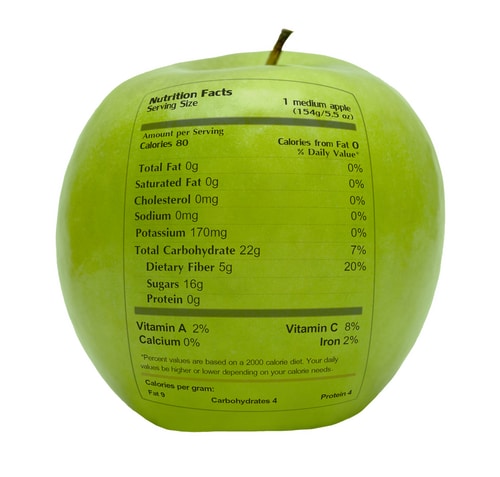 What comes to mind when you see the word “natural” listed on the label of a food item? Many consumers think that a product labeled natural must be better for them. Some even use the terms “natural” and “organic” interchangeably believing that they mean much the same thing. The truth is natural and organic aren’t the same, and just because a product is natural or organic doesn’t mean it’s a healthy choice. Foods that are high in sugar, fat or salt can all be organic, and it doesn’t make them any better for you.
What comes to mind when you see the word “natural” listed on the label of a food item? Many consumers think that a product labeled natural must be better for them. Some even use the terms “natural” and “organic” interchangeably believing that they mean much the same thing. The truth is natural and organic aren’t the same, and just because a product is natural or organic doesn’t mean it’s a healthy choice. Foods that are high in sugar, fat or salt can all be organic, and it doesn’t make them any better for you.
Organic versus Natural: What’s the Difference?
Natural is not a clearly defined term from a product perspective. The USDA defines natural as products that don’t contain synthetic colorings, flavorings, preservatives or artificial ingredients and are minimally processed, but this definition only applies to meat and poultry products. The FDA defines natural as products that contain no synthetic ingredients. That may sound good, but products labeled natural don’t undergo confirmation that they’re free of synthetic ingredients before being placed on store shelves. As a result, food manufacturers freely use this term since it sells products.
Organic is a term that is more clearly defined and regulated. For a product to carry the USDA organic stamp, at least 95% of its ingredients must have been produced organically. This means it was grown without the use of chemical fertilizers, pesticides or bioengineering. To confuse matters, there are different “degrees” of organic. To say that a product is organic, 95% of that product must be made with organic ingredients. Some product labels say a product is “made with organic ingredients.” This means that 70% or more of the ingredients in that product are organic. To be completely organic, the product label should say “100% organic.”
Are Organic and Natural Really Healthier?
Products labeled as organic or natural may still contain too much salt, sugar or the wrong kinds of fats. When people see these words on packages, they assume they’re healthier. That’s wrong in a lot of cases. Sugar and saturated fat are natural but that doesn’t mean they’re good for you. Natural doesn’t even mean that a food is free of pesticides since the ingredients used to make the product may have been grown by non-organic farming practices. What does this mean? Natural and organic doesn’t imply a product is healthy. That’s why it’s so important to read the nutritional label and the ingredient list. If a package of organic cookies contains 18 grams of sugar, they’re not healthy regardless of whether the ingredients were grown organically.
Is Organic Really Better for You?
From a nutritional standpoint, organic foods may not be more nutritious than conventionally-grown foods. Stanford researchers found no significant nutritional differences between organic and conventionally grown foods they tested, although organically-grown foods had a 30% lower risk of being contaminated with pesticides, although not all were pesticide-free. Still, if you’re buying organic to reduce your exposure to pesticides, organic is still a better choice, especially for the “dirty dozen” forms of produce that contain the highest levels of pesticide residues.
The Bottom Line?
Natural and organic don’t always mean healthy. To find out whether a product at the grocery store is a healthy choice, read the nutritional data to see how much sodium, fat, and sugar it contains. Then look at the ingredient list. If the list is long and full of names you can’t pronounce, put it back on the shelf. Select more unprocessed foods from the produce aisle. If you can afford organic and it’s available, buy it to reduce your exposure to pesticides. If not, wash conventionally-grown produce thoroughly using a dilute vinegar solution to remove as much pesticide residue as possible. Even conventionally-raised product is better for you than highly processed, packaged foods that are high in sugar, salt or fat and contain ingredients you can’t pronounce.
References:
New York Times “Save your cash? Organic food is not healthier: Stanford U.”
Stanford School of Medicine. “Little evidence of health benefits from organic foods, Stanford study finds”
U.S. Food and Drug Administration
Related Articles By Cathe:
Nutrition Speak: Don’t Let These Common, Nutritional Buzzwords Fool You
Natural Fiber is Healthy, but What About Synthetic Fiber in Foods?
5 Ways Food and Nutrition Labels Mislead You

